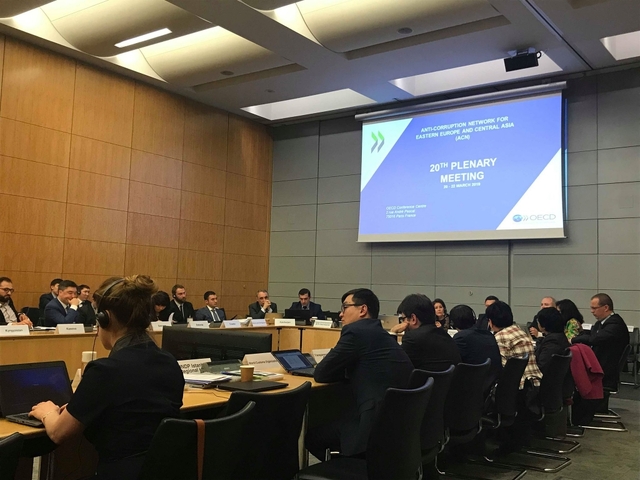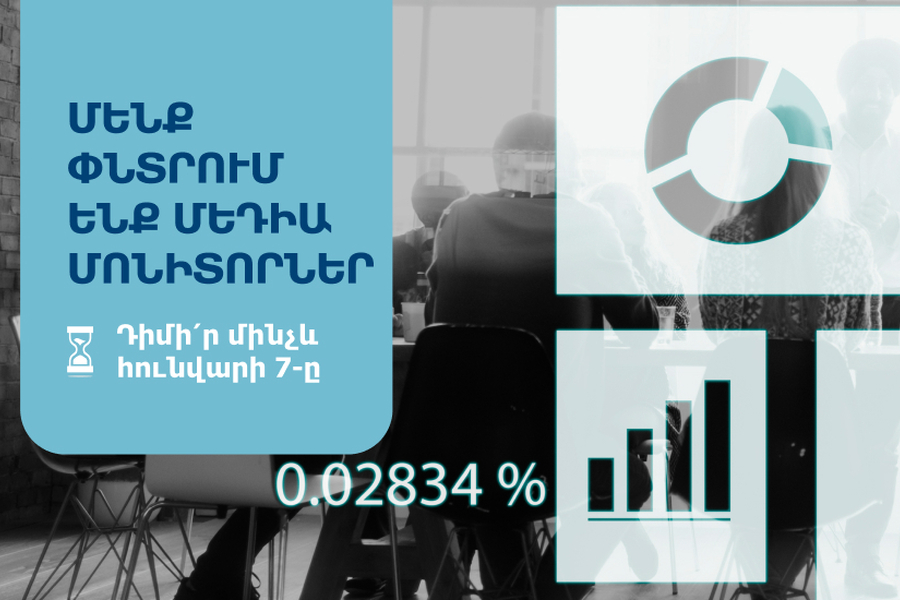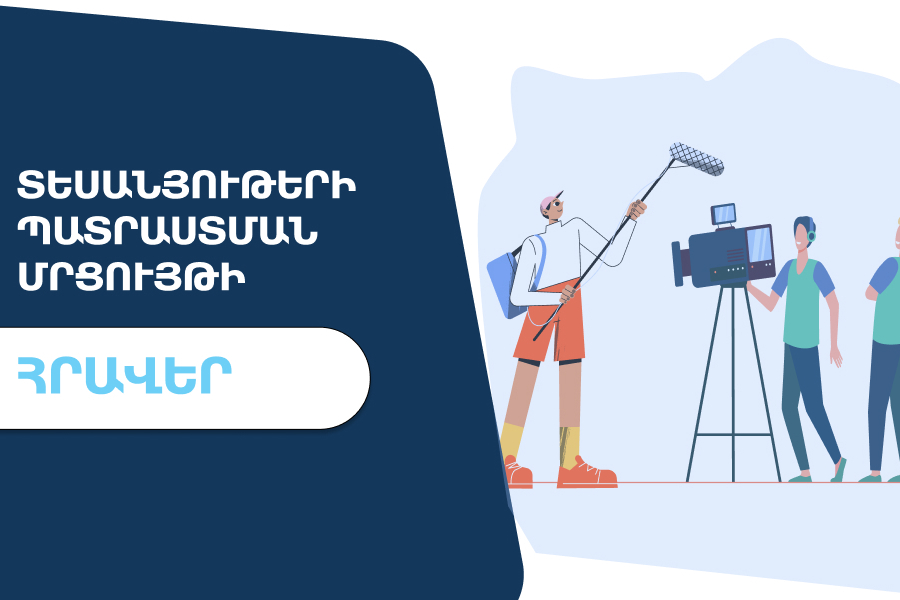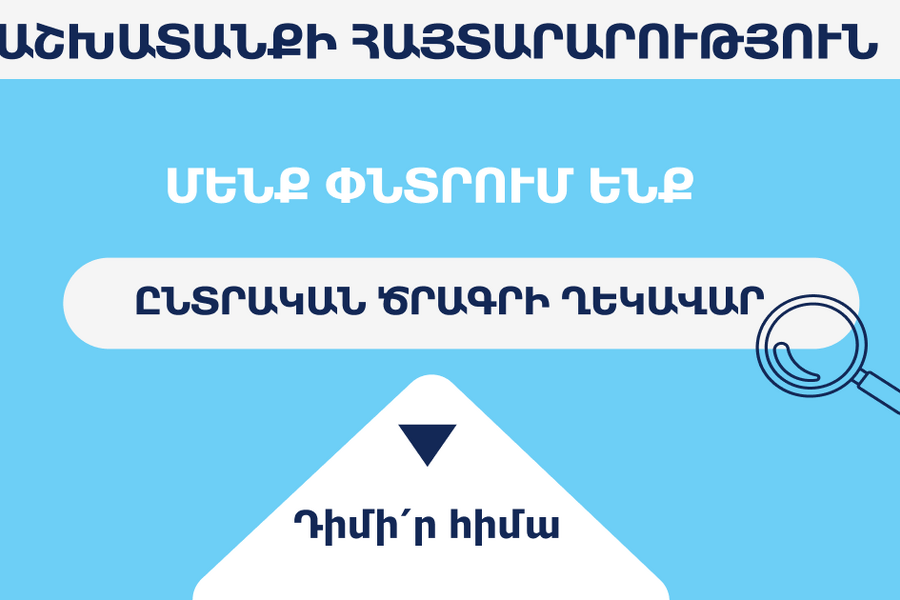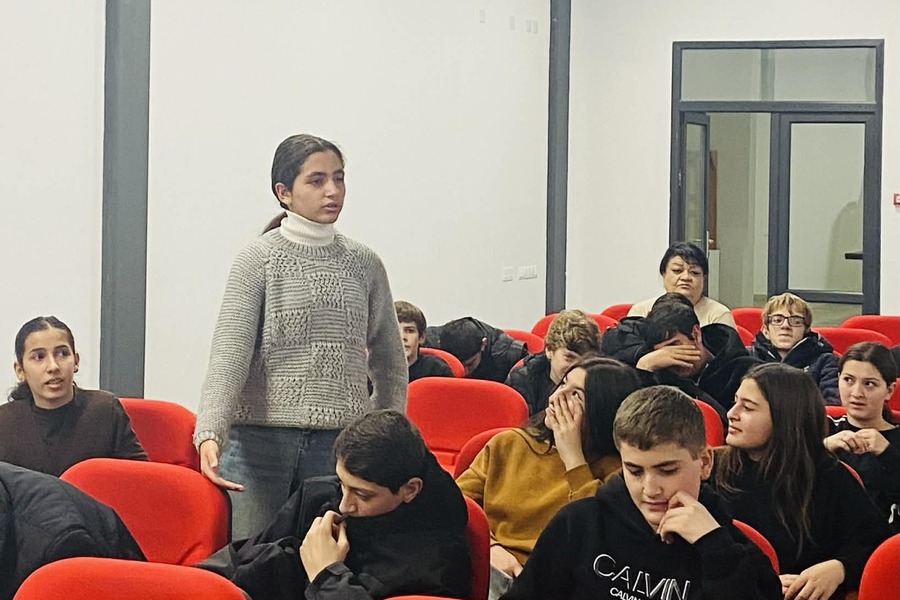The utmost important and urgent task at this moment should be the Armenian government’s clarification of its vision of anticorruption agenda and its elements: Sona Ayvazyan
On 20-22 March 2019, Sona Ayvazyan, Executive Director of Transparency International Anticorruption Center took part in the OECD hosted Plenary Meeting of the Anticorruption Network for Eastern Europe and Central Asia (ACN) in Paris.
The meeting brought together anticorruption decision-makers from countries in Eastern Europe and Central Asia, countries of the OECD Working Group on Bribery, and representatives from international organizations and civil society.
Within the framework of working meetings in Paris TIAC representative participated in bilateral preparatory meeting with OECD ACN secretariat and experts and discussed issues on progress updates by both the government and NGOs on Fourth round monitoring report on Armenia.
In her speech Sona Ayvazyan addressed people’s velvet non-violent revolution that happened in Armenia a year ago, which resulted in change of the government, the reasons of the revolution, the serious consequences of corruption in Armenia and the current situation of fight against corruption.
“A major reason that mobilized the people against the former consolidated autocratic regime was the widespread corruption in the country, and the new leader – Nikol Pashinyan came to power with a major promise to eradicate corruption. The results of elections held in December 2018 - more than 70 percent of votes received through democratic elections held for the first time since 1991 - actually indicated the people’s vote of confidence in the revolutionary force and its promises. This also confirmed the extremely high expectations of people, revealed earlier through public opinion polls,”- noted S. Ayvazyan. She said that though the Armenian state was officially fighting against corruption since 2003, we did not have any progress since then. TI’s corruption perception index was fluctuating around 35, fewer people trusted the government and the majority thought that the fight against corruption is not effective. “TIAC believed that the government’s fight against corruption throughout the years largely was of an imitative nature though there were some elements of success in the establishment of preventive measures and development of legislation. In present, for the first time the Armenian people witness and trust that the government has a genuine political will to eradicate corruption in the country, and according to public opinion surveys people have very high expectations in that regard. For the first time we see that the law enforcement entities are actually operating - trying to do their job, there are accusations against former high-level officials, a few cases on the grounds of illicit enrichment, some efforts to recover the stolen assets, critical decrease of levels of petty corruption, readiness to spend the state budget to finance the anticorruption agenda,”- added S. Ayvazyan.
TIAC Executive Director emphasized new realities in Armenia create a necessity to come up with a more visionary approach in the fight against corruption rather than continuing business as usual. “The utmost important and urgent task at this moment should be the Armenian government’s clarification of its vision of anticorruption agenda and its elements - constructing the respective institutional and policy framework and clearly articulating its plans to the public. We believe that OECD’s support and expertise in this respect would be extremely valuable and critical,” - said the Executive Director.
Wrapping up her speech, S. Ayvazyan also added that as a civil society organization TIAC continued to watchdog the government, monitor general governance processes, help with policy input - particularly with respect to the anticorruption institutional framework, contribute to the agenda-setting and facilitate discussions among stakeholders.
Fourth Round Monitoring reports on Mongolia and Uzbekistan, as well as progress reports on Armenia, Azerbaijan, Georgia, Kazakhstan, Kazakhstan, Tajikistan and Ukraine were presented for discussion and adoption during the Istanbul Anti-Corruption Action Plan Meeting. ACN Steering Group Meeting focused on the implementation of the current ACN Work Program of 2016-2019 as well as the preparations for the upcoming ACN Work Program, commencing 2020. As part of the OECD Integrity Week 2019, Roundtable on Anti-Corruption and Business Integrity was held on March 19, and Sona Ayvazyan took part in it.


